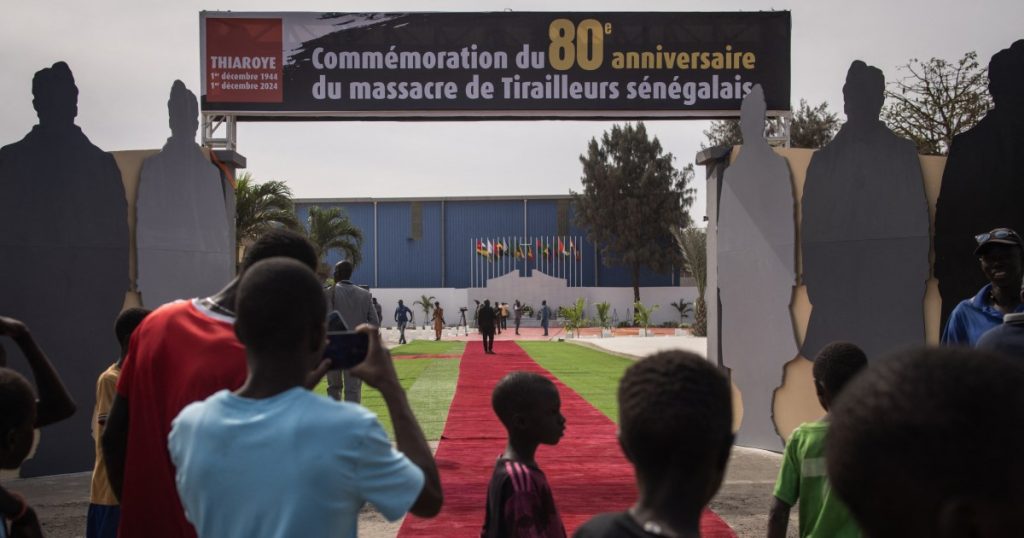Senegal’s decision to terminate its decades-long defense pact with France, requesting the withdrawal of French troops from its soil, signals a significant shift in the dynamics between the two nations. While surprising on the surface, this move has been brewing beneath the surface for years, fueled by growing nationalist sentiment, resentment over historical injustices, and a desire for true sovereignty. President Bassirou Diomaye Faye’s announcement, coinciding with the 80th anniversary of the Thiaroye massacre, where French colonial forces killed hundreds of Senegalese soldiers, underscores the deep-seated resentment and unresolved trauma surrounding France’s colonial past. The timing served as a powerful symbolic gesture, aligning with Faye’s campaign promises to reassess Senegal’s relationship with its former colonizer. This decision reflects a broader trend across West Africa, where nations are increasingly seeking to redefine their relationships with France, moving away from the traditional Francafrique model.
The Francafrique system, characterized by France’s extensive political, economic, and military influence in its former African colonies, has long been a source of contention. Many African nations perceive France’s continued involvement in their internal affairs as paternalistic and neocolonial, hindering their ability to chart their own course. Resentment stems from France’s perceived interference in political processes, its dominance in key economic sectors like mining, and its perceived failure to effectively address the growing threat of armed groups in the Sahel region, despite a significant military presence. This discontent has been amplified by the rise of nationalist leaders and movements, who champion the need for true independence and self-determination. The expulsion of French troops from Mali, Burkina Faso, and Niger in 2022, following coups in those countries, further illustrates the growing rejection of French influence in the region. These nations, frustrated by France’s lack of support for the new military regimes, have turned to alternative partners, such as Russia, for security assistance.
Senegal’s situation differs from these other nations, as it is not under military rule. However, the undercurrent of anti-French sentiment, fueled by economic disparities, historical grievances, and the influence of figures like Prime Minister Ousmane Sonko, a vocal critic of France, has contributed to a growing sense of unease with the French presence. Despite the deep integration of French businesses and culture into Senegalese society, exemplified by the prevalence of French companies and the widespread use of the French language, public opinion has increasingly turned against what is perceived as continued French dominance. The looting and burning of French businesses during protests in 2023 highlights the underlying tensions and the potential for social unrest fueled by anti-French sentiment.
President Faye’s call for the withdrawal of French troops does not represent a complete severing of ties with France. He has emphasized that Senegal values its economic relationship with France, which remains a significant trading partner. However, the demand for a formal apology and reparations for the Thiaroye massacre signifies a desire for a more equitable and respectful relationship. This demand reflects a growing call across Africa for former colonial powers to acknowledge and atone for the atrocities committed during the colonial era. The symbolic importance of this demand cannot be overstated, as it represents a reclaiming of historical narrative and a push for justice for past wrongs.
France’s declining influence in its former African colonies has forced it to re-evaluate its strategy in the region. Recognizing the shifting political landscape and the growing anti-French sentiment, France has begun to reduce its military footprint in several countries, including Senegal, Gabon, and Ivory Coast. This shift in focus suggests a move away from direct military intervention towards a greater emphasis on economic partnerships and diplomatic engagement. France is also seeking to diversify its alliances within Africa, engaging with nations outside its traditional sphere of influence, such as Nigeria, in an attempt to maintain its presence and relevance on the continent.
The future of the Franco-Senegalese relationship remains uncertain. While economic ties are likely to persist, the political and military dimensions of the relationship are undergoing a fundamental transformation. Senegal, under its new leadership, is seeking to assert its sovereignty and redefine its place in the world. The demand for reparations for the Thiaroye massacre serves as a crucial test of France’s willingness to confront its colonial past and build a more equitable relationship with its former colonies. The outcome of this process will have significant implications not only for Senegal and France, but also for the broader dynamics between former colonial powers and African nations. It represents a pivotal moment in the ongoing re-negotiation of power and influence on the African continent.

